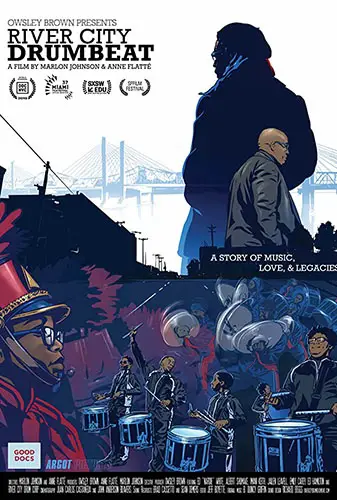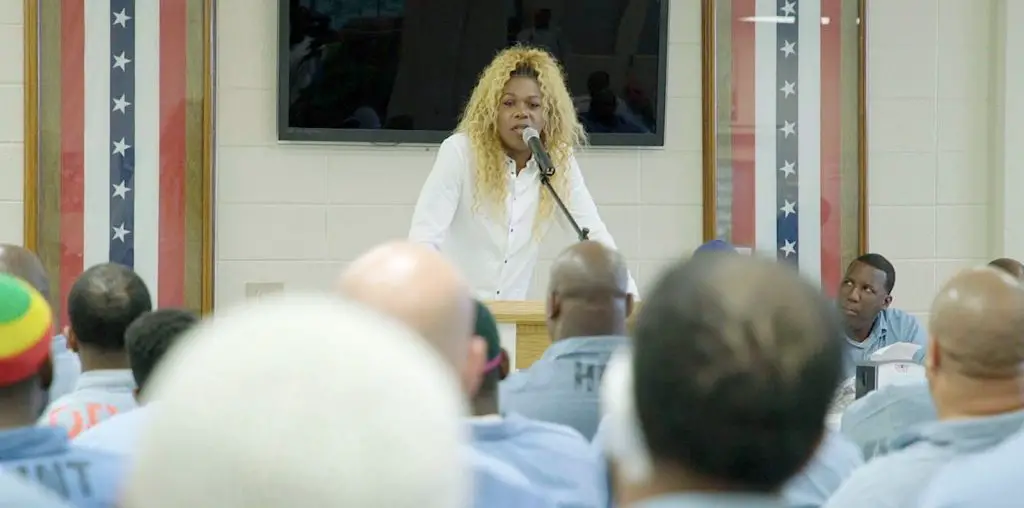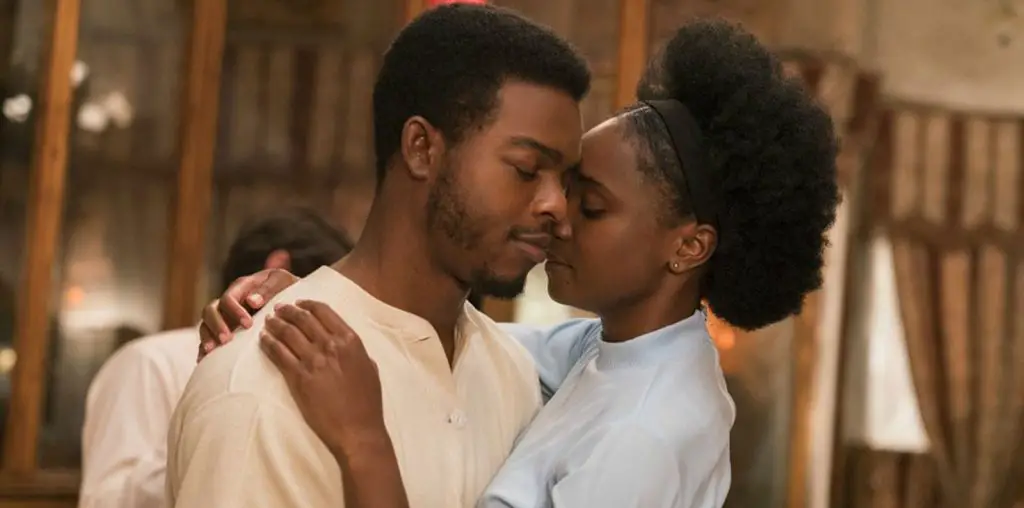
Directors Anne Flatte and Marlon Johnson have captured the essence of mortal rhythm in their documentary River City Drumbeat. The cadence of life is the heartbeat we can hear in our ears. The insistent pounding of drums has always been an essential, spellbinding expression of that internal tempo.
On the West side of Louisville, Kentucky, Edward “Nardie” White poured all his energy into the African-American drum corps he co-founded with his wife Zambia Nkrumah three decades ago. They began with a drumbeat and used that primal essence to energize youth from their neighborhood by connecting them with the arts in general and, specifically, with their African ancestors’ cultural traditions.

“…connecting them with the arts in general and, specifically, with their African ancestors’ cultural traditions.”
Nardie is the elder of the drum corp, respected and revered, he’s helped these children grow to adulthood with a sense of the wider world outside of their rough neighborhood. His usual cheer gives way to sadness when he describes his granddaughter’s death, who was shot to death. He’s seen the violence and hopelessness of the streets firsthand, but with his guidance, he’s led many away from that life, and on to better things.
We meet Nardie at the end of his time with the drum corp. Now Albert Shumake, who was mentored by Nardie and Zambia, will follow in Nardie’s footsteps to lead the next generation. Albert is a gentle soul who literally owes his life to his time with the drum corp. As a young father, he wants his child to grow up with the compassion and attention that he did not get until he was 8-years-old when he met Nardie. The story has a sadness that floats above the poverty and despair of the neighborhood situation, something more profound. Then we learn that some time ago, Miss Zambia passed, and the entire community still mourns her loss. She was the beloved Matriarch who treated each child as her own.

"…we've come to accept that as part of the American story, but it's BS."


